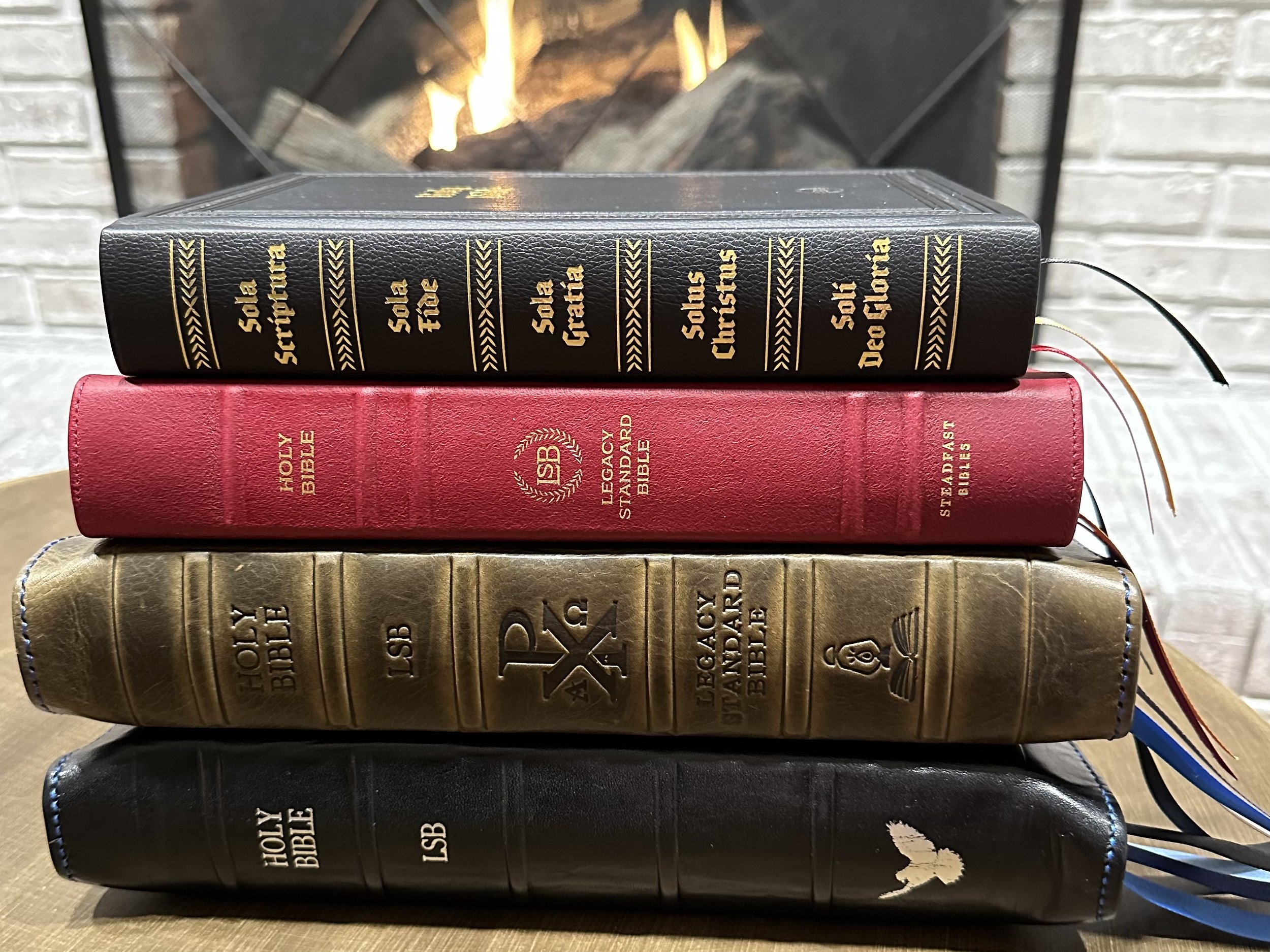A New Legacy
I’m planning on releasing a short series of posts about why I have decided to switch to using the Legacy Standard Bible as my main translation for personal reading, study, and devotion. I have used the English Standard Version since 2005 and so this change is not one I am making lightly. I have a wide variety of reasons. Some are Scripture based and others are mere preference. I hope to have a short post that touches on each of these reasons. When it comes down to it, we as English speakers are blessed with a wide variety of good translations. Each of us make a preferential choice. I’d advocate that you read the translation you enjoy because it is a blessing and delight to be in God’s Word.
I want to begin by clarifying some misinformation that has circulated about the LSB. Many will immediately dismiss the translation as having too narrow scholarship behind the translation team. Many argue it was only a small group from Master’s Seminary who worked on this translation. I want to help dispel these rumors giving you a quote straight from the LSB website:
The LSB is a joint-venture product of The Lockman Foundation, Three Sixteen Publishing, and the John MacArthur Charitable Trust. The translation committee consists of a group of biblically qualified, faithful men from the Master’s University and Seminary, all of whom are scholars and preachers. The translation also went through an extensive review process from a team that consists of scholars and pastors from all around the world.
It is the extensive review process that matters. This is not an isolated translation project and many were brought in to create this new translation. That information alone, I believe, is enough for some to give the Legacy Standard Bible a chance.
This brings me to my first reason for switching to the LSB: translation philosophy. The LSB seeks to be as literal as possible in translation of the Greek, Hebrew, and Aramaic. As someone who will most likely never be fluent in biblical Greek or Hebrew, this is important to me in a translation because it means that I can see as close as possible what was originally written.
I don’t have a problem with thought-for-thought translations. In fact, I find them helpful and necessary. In my personal study however, I want to try and be as familiar with the original text as I can. I even want this for my memorization. I don’t think others are wrong who take a different stance. It’s just my personal preference.
The other thing I appreciate is the express purpose stated on the LSB website to “seek to ensure that the same words and phrases correspond to each other within the translation as much as possible.” This is important for biblical theology, which will be a reason I touch on in the next post.
I think many of my reasons will have some overlap, but I hope to keep these posts brief. I will leave by once again saying read the translation you enjoy. I’m not trying to convince you that the LSB is the best, I’m just trying to spark conversation. The worst thing you can do is not be in God’s Word at all.




